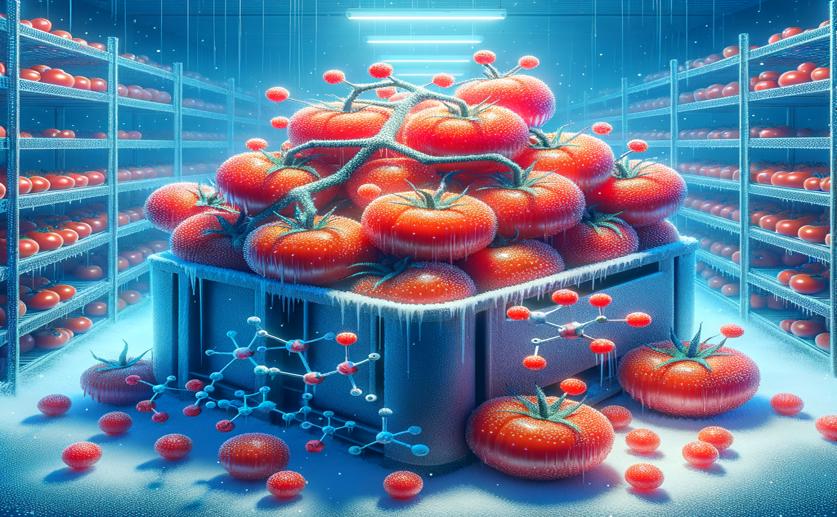
How Hydrogen Sulfide Helps Tomatoes Stay Fresh and Firm in Cold Storage
Jenn Hoskins
25th June, 2024

Image Source: Natural Science News, 2024
Key Findings
- The study from Guangxi University explored how hydrogen sulfide (H2S) can help tomatoes resist cold storage damage
- Tomatoes treated with H2S showed better energy metabolism, keeping them fresh and firm during cold storage
- H2S treatment also slowed down cell wall degradation, preventing the softness and spots usually caused by cold storage
References
Main Study
1) Involvement of energy and cell wall metabolisms in chilling tolerance improved by hydrogen sulfide in cold-stored tomato fruits.
Published 24th June, 2024
https://doi.org/10.1007/s00299-024-03263-2
Related Studies
2) Hydrogen Sulfide Mitigates Chilling Injury of Postharvest Banana Fruits by Regulating γ-Aminobutyric Acid Shunt Pathway and Ascorbate-Glutathione Cycle.
3) The hydrogen sulfide signal enhances seed germination tolerance to high temperatures by retaining nuclear COP1 for HY5 degradation.
4) Hydrogen sulfide induces systemic tolerance to salinity and non-ionic osmotic stress in strawberry plants through modification of reactive species biosynthesis and transcriptional regulation of multiple defence pathways.



 6th June, 2024 | Jim Crocker
6th June, 2024 | Jim Crocker